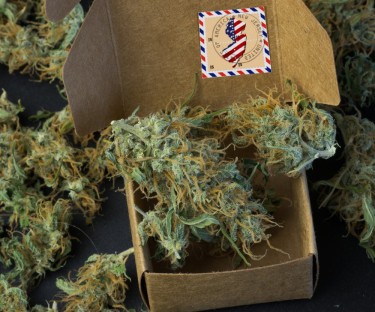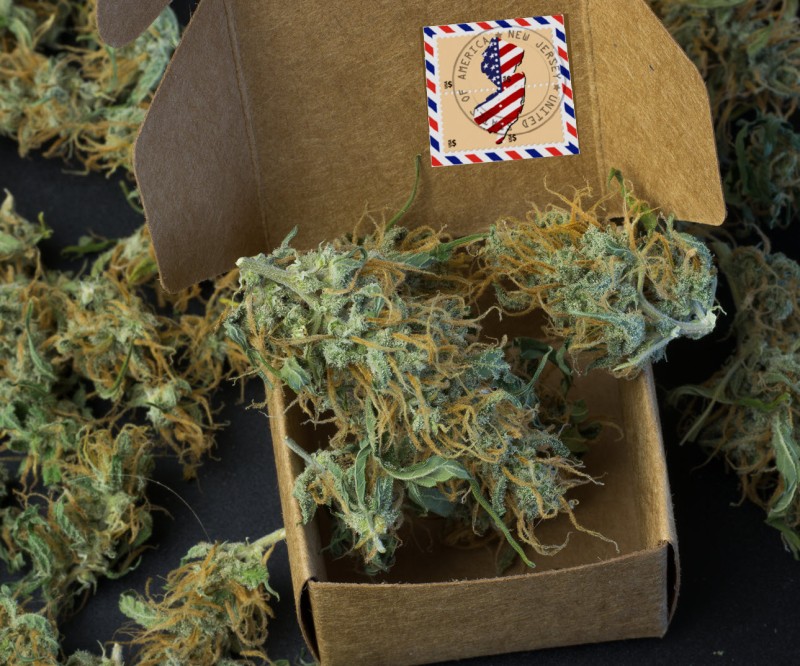
Certain cannabis industry leaders are optimistic that the federal government's reclassification of marijuana from Schedule 1 to Schedule 3 of the Controlled Substances Act will clear the way for the interstate movement of cannabis goods. Legal experts in the marijuana industry, however, contend that this optimism is only partially justified.
Schedule 3 and Schedules 4 and 5 currently allow interstate commerce exclusively for drugs sanctioned by the U.S. Food and Drug Administration (FDA). Examples include anabolic steroids, ketamine, testosterone, Tylenol with codeine, as well as synthetic THC formulations like dronabinol, Marinol, and Syndros, prescribed to stimulate appetite in chemotherapy patients or those grappling with anorexia.
The question arises: Can products like cannabis flower, concentrates, THC-infused edibles, and other items available in medical marijuana dispensaries and adult-use retailers be eligible for interstate commerce?
Legally, the answer is negative unless these products secure FDA approval.
As emphasized by attorney Justin Brandt from the law firm Bianchi & Brandt in Scottsdale, Arizona, the crucial factor is FDA approval. He clarifies that possessing an FDA-approved cannabis product is the key to engaging in interstate commerce, drawing parallels with other Schedule 3 drugs like Tylenol with codeine. Brandt emphasizes that state-legalized medical cannabis, by itself, does not automatically attain the status of a Schedule 3 marijuana product. It remains distinct and separate, residing outside the jurisdiction of the FDA and the Controlled Substances Act, and therefore maintains its status as federally illegal.
Navigating Legal Complexities
While marijuana products lacking FDA approval would remain federally illegal, many observers anticipate that the rescheduling of the plant could lead federal authorities to be less inclined to target cannabis businesses engaged in cross-border sales.
In recent years, Congress has consistently included provisions in budget legislation barring the use of federal funds to crack down on state-regulated medical cannabis businesses. This legislative safeguard has played a significant role in the federal government's hands-off approach to marijuana companies, even when classified as a Schedule 1 substance.
If marijuana is shifted to Schedule 3, legal experts and industry observers predict that federal intervention in compliant businesses adhering to state laws will be further reduced. Additionally, some believe that if states have established agreements permitting interstate commerce under specific conditions (as seen in California, Oregon, and Washington), the federal government will be even less likely to interfere under Schedule 3.
Eric Berlin, leader of the U.S. and global cannabis teams at the law firm Dentons, emphasized that FDA approval for cannabis products in interstate commerce would be unchecked. He suggested that states could potentially open up interstate commerce to some extent, and if Oregon and California chose to do so, there might be limited federal intervention.
Vince Ning, CEO of Nabis, a cannabis distribution company operating in California and expanding to New York, acknowledged that rescheduling might not alter the legal status of state-regulated marijuana products. However, he foresaw a potential shift in federal law enforcement attitudes and policies regarding state-regulated marijuana and interstate commerce.
The Intersection of State Agreements and Federal Oversight
In the event of rescheduling, there would be an immediate surge in positive sentiment favoring the promotion of interstate commerce, according to Ning.
California, Oregon, and Washington have enacted laws facilitating interstate commerce for licensed cannabis businesses, allowing the transport of THC products across state lines into other regulated markets. However, this is contingent upon the federal legalization of marijuana or its interstate commerce.
At the very least, the prospect of rescheduling prompts the federal government to reconsider whether it will permit or regulate interstate commerce noted Ning. He expressed confidence that federal authorities would likely refrain from interfering with marijuana interstate commerce as long as it aligns with state regulations.
Ning, however, issued a cautionary note. Given the oversaturation of many cannabis markets, he warned that legally imported marijuana from other states could worsen the challenging business climate if interstate commerce is not executed correctly. He highlighted the concern that an influx of California products into other markets could swiftly drive down prices, potentially harming local industries within specific states.
In response, Ning suggested that states facing such concerns might opt to impose import and export tariffs and interstate commerce taxes to safeguard their local cannabis industries from the potential adverse effects of price fluctuations.
Interstate Commerce Prospects: Assessing the Potential Impact of Marijuana Rescheduling
Ning pointed out that such regulations are not uncommon, as states also have their own laws governing the distribution of alcohol, which companies must adhere to.
"Each state has its own tax regulations when it comes to transporting liquor. If you intend to transport alcohol across state borders, you must work with specific distributors. Each state imposes different taxes and requires different sets of paperwork," explained Ning. "Compliance with the regulations in each state is necessary, involving a significant administrative burden. However, considering the evolution of the market so far, it seems that the cannabis industry is likely moving in a similar direction."
Hawaii is also navigating the complexities of federal marijuana enforcement. In June, the state passed House Bill 1082, allowing state-licensed companies to wholesale marijuana to cannabis businesses, even those situated on different islands. These regulations became effective on August 7, a crucial development as traveling between islands involves crossing federal waters.
Big Island Grown, based in Hilo, Hawaii, successfully conducted its inaugural inter-island transport to Green Aloha dispensaries on Kauai on September 1. Jaclyn Moore, CEO of Big Island Grown, emphasized that despite the passage of the Hawaii legislation, it explicitly warns cannabis businesses that state law does not override federal marijuana prohibitions.
When asked about her confidence that federal authorities won't interfere with interisland marijuana shipments, Moore expressed uncertainty. She emphasized the importance of operating as compliantly as possible and exceeding compliance requirements, recognizing the federal focus on addressing issues within the illicit market rather than targeting highly compliant state businesses.
Bottom Line
The potential rescheduling of marijuana from Schedule 1 to Schedule 3 has sparked optimism among some in the cannabis industry regarding the prospect of interstate commerce. However, legal experts stress that the requirement for FDA approval may temper such optimism. While a shift to Schedule 3 could influence federal intervention, challenges, such as oversaturation and potential price fluctuations, underscore the need for careful execution of interstate commerce. The complex interplay between state and federal regulations, likened to those in the alcohol industry, highlights the evolving nature of the cannabis market. As states navigate these complexities, the success of the interstate cannabis trade hinges on compliance, regulatory alignment, and a nuanced understanding of federal priorities within the dynamic landscape of the burgeoning industry.
IS SHIPPING WEED ALREADY LEGAL TO DO? READ ON...
YES, IT IS PROBABLY LEGAL TO SHIP CANNABIS UNDER THE DCC SAYS PROF. MIKOS!






